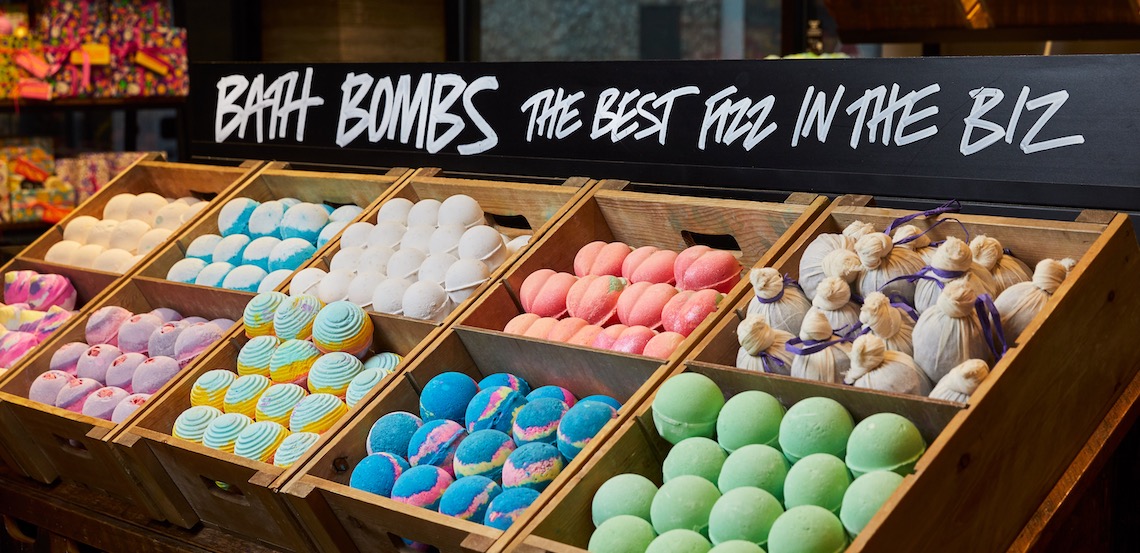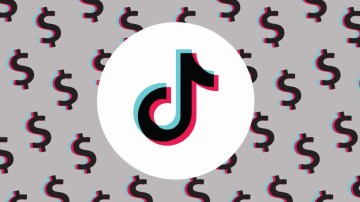Lush is bringing its idea of bath-focused wellness to podcasts.
On May 5, Lush launched its first-ever podcast, titled “The Sound Bath: Conversations That Cleanse,” hosted by blues poet and storyteller Aja Monet. Podcast episodes are published bi-weekly, and Lush encourages listeners to tune into the podcast while taking a bath. So far, episodes include interviews with Safiya Noble, a UCLA professor, on reclaiming mental wellbeing in online spaces, and climate justice advocate Naomi Klein. Thus far, Lush’s podcast is not product-focused but is instead designed to be a community touchpoint with customers. It is available on all major podcast platforms. This is Lush’s first major digital content strategy after quitting Instagram, Facebook, TikTok and Snapchat in Nov. 2021.
“The current conversation about self-care still isn’t inclusive enough. There isn’t enough diversity and voices, perspectives and experiences shaping those conversations. Self-care isn’t one size fits all, [and] creating a wellness practice is so deeply personal,” said Julia Hamfelt, managing editor for Lush Cosmetics North America. “We also noticed that, in the [wellness] industry, self-care was only about looking inward. The dots were not connecting between care for ourselves and our communities and the environment.”
The podcast is not Lush’s first foray into the sound space. In Dec. 2017, it published an ASMR YouTube video with popular YouTuber Taylor Darling, who goes by the handle ASMR Darling. That video garnered over 1.7 million views, 40,000 “likes” and 3,000 comments. Podcasts within the beauty industry are not a new marketing or communications channel. More recently, however, the beauty industry has started to participate more in the development of sonic identities due to the popularity of audio clips and songs on TikTok.
However, you won’t find Lush involved in sonic identity on TikTok. With the departure from TikTok and other major social media platforms, Lush has re-focused its efforts on other pre-existing channels like YouTube and in-person events. Wendy Kubota, brand director at Lush Cosmetics North America, said that Lush did not previously invest in paid advertising through Facebook or Instagram, rather Lush’s strategy focused on unpaid brand-led content. With the podcast, Lush is working with podcast production company Jar Audio to record, edit and distribute the podcast.
“We are a wellbeing brand. If content was being pushed to people that would [negatively] impact their wellbeing, then we wouldn’t want to contribute to those channels,” said Kubota. “When we look at the podcasts, that’s our opportunity to explore different concepts and ideas in that environment where it’s a contained platform, so it’s safer for people.”
Kubota added that not being dependent on Instagram, Facebook, TikTok and Snapchat has positively challenged Lush to become more creative with its marketing and communication approaches. In addition to the podcast, Lush is developing a bathing-focused strategy for the year: It will debut an app that will launch at the end of 2022 and offer bookable bath experiences in 2023, plus. it will explore new concept shops in North America focused purely on the bathing experience. Most recently, on April 27, Lush celebrated the marketing holiday World Bath Bomb Day, which it created. The inaugural event included giving away 100,000 bath bombs and offering bath bomb pressing events in 259 North American Lush stores.
“We don’t take a prescriptive approach to beauty, which means that [our] products are for everyone. That is just one component of supporting diversity in beauty moving forward,” said Hamfelt. “We know there’s a lot of opportunity for us [with the podcast] to go much deeper with that [inclusive] conversation.”




